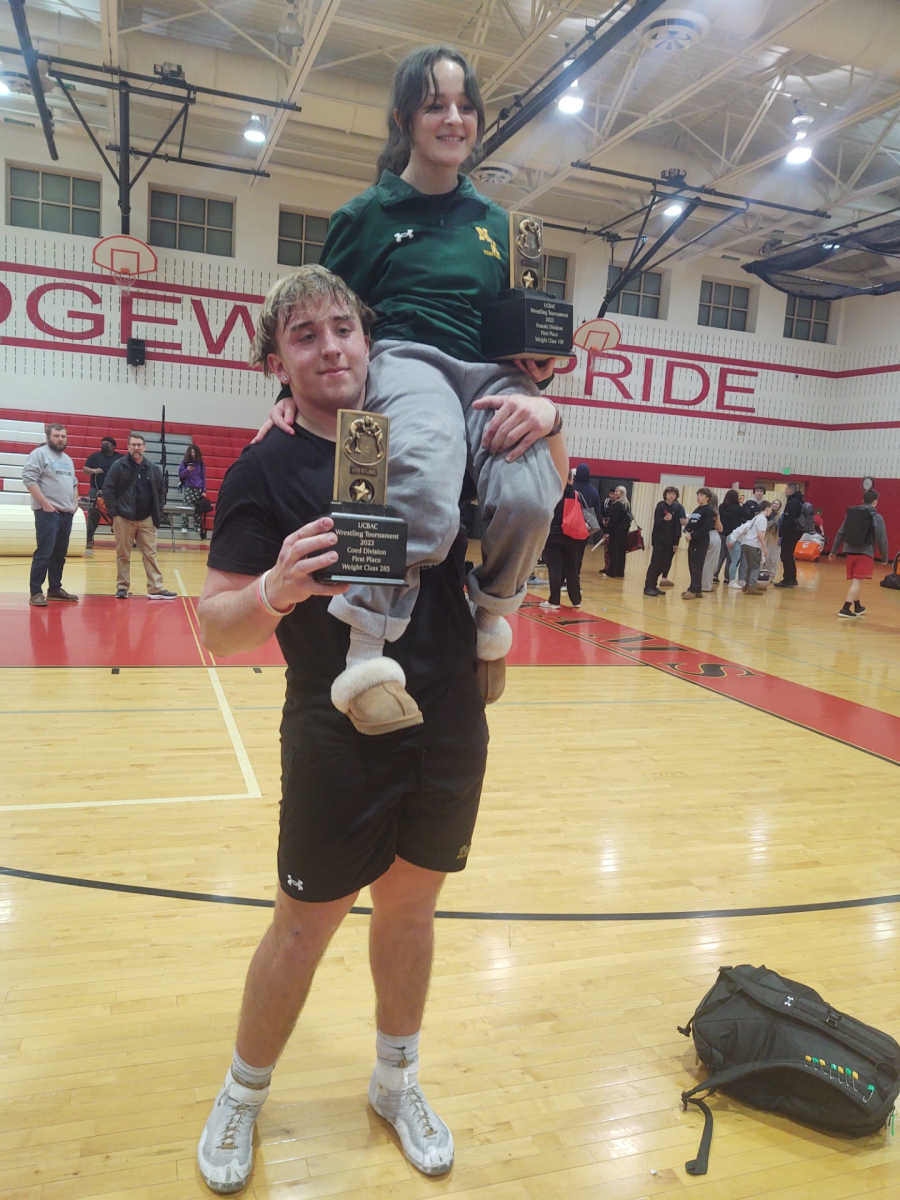Genetic greatness or terrific training: Athletes at work
November 27, 2018
Are individuals born as champions? Do they come from the womb with their natural ability and talent? Can hard work and determination surpass a seemingly unfair natural ability that some just have?
The answer is no.
There are some people who are born with speed and strength or the body type and genetics that allows them to be fast. And there are some people who just aren’t meant for speed.
Those who are born with the genes that are advantageous for competing in sports don’t necessarily need the same emphasis on training as those who don’t.
This is true in many arenas, including running.
Take for example two of the world’s fastest, most well known runners, Usain Bolt and Yohan Blake. They are both extremely talented, running at unimaginable speeds, and on completely different paths to reach their goals.
Bolt is naturally gifted, and has publically agreed that he has “God-given talent.” Blake, known as ‘the beast’ because of his work ethic, is willing to train his hardest to get where he wants to be, even if this means working triple as hard.
Scientifically speaking, Jamaicans like Bolt and Blake have genes that make them faster than the average white American. This is a stereotype, but it is also a fact.
Dr. Ian Bezodis, Sports Biomechanics Laboratory Director at Cardiff Metropolitan University says, “The first foot contact after the blocks might last about 0.2 seconds, then it gradually reduces to about 0.1 seconds at maximum velocity; it’s all about being powerful in each ground contact.”
Clearly, to be a sprinter, a runner must have strong fast twitch muscles in order to get faster throughout a race and be explosive when leaving the blocks. These muscles are boosted by possession of the “sprinting gene” – ACTN3.
According to Dr. Bezodis, studies have proven that 75% of Jamaicans carry this gene, compared to 70 percent of US athletes. Jamaicains do have the ability to be faster, with hard work and extreme training, that is.
The aluminum-rich soil of Jamaica increases the activity of this gene which may suggest that Bolt’s speed could partially be accounted for where and how he was raised.
The advantage of having the “sprinting gene” is something that sets apart runners.
Science suggests that if a white American and a Jamaican both complete the same training and are following the same diet and lifestyle, the Jamaican will more than likely win in a race, and that is due to genetics.
Bolt’s childhood isn’t the only thing that can be considered an athletic advantage. His 6’5” stature gives him longer strides which are helpful in short distance sprinting races. He is noticeably taller than most of his competition, including Blake, Weir, Galtin, and Gay.
Being taller isn’t always beneficial in running, but Bolt’s stride length surely is. In a 100m run, Bolt takes an average of 41 steps. Bezodis said that the majority of his competition have an average stride out of 43-50. Their strides are around 20cm shorter than his 2.5m step. 20cm doesn’t sound like very much, but when your race is only 10,000cm long, it matters.
Height shouldn’t be an advantage or disadvantage because body proportions change with height. Dr. Bazodis says, “The amount of fatigue generated during anaerobic activities might be related to the number of muscle contractions and hence strides, which might benefit a taller athlete like Bolt towards the end of the race.”
Running sub 10 seconds in the 100m is not normal, it’s insane.
Even blacks who are not Jamaican can have advantages over white Americans with the same training and lifestyle in sprinting races. Adrian Bejan, an engineering professor at Duke University, says, “Blacks tend to have longer limbs with smaller circumferences, meaning that their centers of gravity are higher compared to whites of the same height.”
Having a long torso gives a person a lower center of gravity, which is common in whites and Asians, which slows down the rate at which someone can move their feet.
The legs are what win a race. They are what do the work and win the race. Having a longer torso gives a person extra weight that the legs have to support.
Blacks do not always have the advantages of having a longer torso. Take for example swimming, where a longer torso makes a stronger, faster athlete.
But either way, the argument stays the same. An athlete can work as hard as they can and never be as good as another who is born with the stature or genetics as someone else.
Even at the high school level, most varsity runners on the cross country and track team perform the same training. And it is clear, not everyone is equal in ability.
Most of the time, the athlete with determination, ambition, and hard work cant beat out one with natural talent. But, talent combined with effort and hard work will make an athlete one that a coach wants to have on a team, and makes for unbeatable competition.






